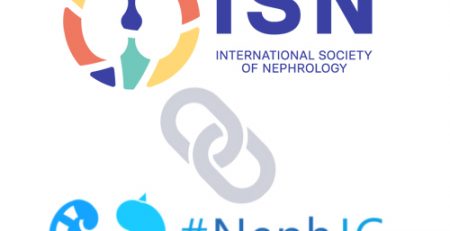Getting kidney health on the international policy agenda
[vc_row][vc_column][vc_column_text]
The ISN Advocacy team runs through some of the challenges ahead when it comes to getting kidney health as a Non-Communicable Disease on the international policy agenda.
Non-Communicable Diseases (NCDs) have become the overriding burden of disease globally. However, national programs in resource-limited countries still largely focus on infectious diseases. This is due to a choice for targeted interventions, and because cost-effective solutions like vaccines are procured and subsidized by international mechanisms such as the Global Fund and GAVI.
On the policy side of things, this set up is largely reflected in the World Health Organization’s (WHO) historical policy of lending expert guidance to countries with weaker health policy capacities which traditionally were plagued by infectious diseases.
Treating NCDs by prioritizing certain conditions is less than efficient because of the significant linkage between all NCDs, like diabetes, cardiovascular disease (CVD), cancer, and respiratory disease, and their links with lifestyle choices, environmental conditions and genetic predisposition. ‘To effectively prevent and cure NCDs rather than treat the symptoms of their chronic manifestations, an integrated approach is required, and robust health care systems are needed,’ says Adeera Levin.
‘Kidney disease does not figure prominently in any NCD strategy or document, though it is really an amplifier of risk for all of the above, and is directly linked to diabetes, CVD, chronic obstructive pulmonary disease, and interestingly, some communicable diseases,’ adds Levin.
What is the current international policy framework?
In 2011, the United Nation’s legislative body, the General Assembly (UNGA), took an unprecedented step and set down a strategy for preventing and controlling non-communicable diseases. The strategy focused on heart and lung diseases, cancers and diabetes and their four main risk factors (physical inactivity, tobacco and alcohol consumption, unhealthy diet) hence creating the 4×4 strategic framework which has guided WHO’s NCD work until now as encapsulated in its Global Action Plan for the Prevention and Control of NCDs.
In the 4by4 strategy, kidney health is understood predominately as a by-product to managing diabetes and hypertension. This is clearly reflected in the fact that: while three-quarters of countries have an overarching NCD policy or strategy, more than half (53%) have no management guidelines or strategy for improving the care of people with CKD (either specifically or within a broader NCDs strategy). In late 2018 the UNGA is set to comprehensively review its strategy.
In 2015, the 2030 Agenda for Sustainable Development recognized NCDs as a major challenge for sustainable development – a political commitment previously absent from the sustainable development agenda.
Finally, a 40-plus member UN Interagency Task Force on NCDs supports countries to tackle the epidemic. The Task Force meets twice a year and reports annually through the United Nations Secretary-General to the United Nations Economic and Social Council (ECOSOC).
What are the next steps?
The 2018 High-level meeting on NCDs, taking place in September and culminating in a new strategic document will be preceded by several meetings and reports, which will point the way forward. From October 18 to 20, 2017, world leaders met in Montevideo, Uruguay, to discuss the importance of the major NCDs for sustainable development.
The conference also produced a roadmap of new global initiatives to help countries accelerate progress in reducing premature mortality from NCDs. By the end of 2017, the WHO Director-General will publish a report evaluating the progress made in fighting NCDs and formulating recommendations for the future. In early 2018, UN member states will negotiate a modalities regulation setting out the objective of the UN high level NCD meeting, the level of participation, and its duration.
ISN will closely follow the negotiations, reports and meetings preparing the ground for the 2018 high level meeting. ISN together with its partners will push for a comprehensive review of the UN NCD strategy at the highest political level and with maximum inclusion of civil society and sufficient financing at international and domestic level.
[/vc_column_text][/vc_column][/vc_row]












